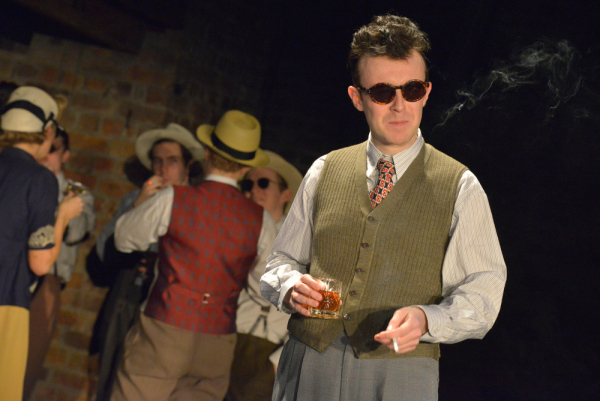Oppenheimer (Vaudeville Theatre)

© Keith Pattison
After a spate of films in recent months looking into the intertwining of scientists' work and home lives, from Alan Turing to Stephen Hawking, it seems timely for the Royal Shakespeare Company to present Tom Morton-Smith's new play.
Now transferring to the West End following a successful run in Stratford, Oppenheimer focuses on the father of the atomic bomb, J Robert Oppenheimer – or "Oppie" to friends – and the work he and his team did during the Second World War as part of the Manhattan Project, from the seeds of an idea to the dropping of Fat Man on Nagasaki in 1945.
The production begins with Oppie addressing the audience: "If the work eludes you, if you lack the ability, take your leave", and yet the following three-hour epic is much more than a physics lecture, taking in politics, the morality of nuclear weaponry and ultimately, the human cost of progress.
John Heffernan is the nucleus of the production; a calm, collected presence as the eponymous scientist, liable to explode with bursts of rage when pressured, around whom flit colleagues and friends, family and lovers.
As the Project continues and he and his team get closer to their end goal, Heffernan conveys the moral doubts of the bomb's creator who feels "like I've left a loaded gun in a playground", all the while giving the sense of a man whose core is, in his words, "iron".
Morton-Smith's painstaking research is echoed by Angus Jackson's remarkable production; the science is explained in an accessible and engaging way, using neat metaphors and Karl Dixon's video design to full effect. And there are touches that science lovers (myself included) can appreciate too; I particularly enjoyed a bongo-playing Richard Feynman during celebratory revels to mark the inaugural test explosion.
It's worth noting, too, that the production has transferred well – shows moving into a dramatically different space are sometimes liable to lose something in transition, but the Vaudeville suits it and Jackson makes good use of the auditorium and boxes as well as the expansive playing space.
The 20-strong ensemble all put in good performances, and Scott Ambler's choreography facilitates some neat scene changes, switching from a party to a Berkeley lab, participants working away on the chalk walls and floorboards, and back again.
Especially noteworthy are Jack Holden's young Robert Wilson (surely an actor to keep an eye on), Ben Allen's Edward Teller, a mess of brilliant mind and massive ego who rallies against Oppenheimer at every opportunity, and William Gaminara's General Groves, who leads the operation of militarising the scientists' work.
At the heart of the play is the dilemma of those working on the Manhattan Project about the consequences of their work. The effects of the Japanese bombing are described in heart-wrenching detail; having built a star on the surface of the world, one scientist is left questioning if he'll "ever be at ease again".
Some odd touches – the very literal representation of the Little Boy bomb, a couple of overly caricatured portrayals – as well as a malfunctioning speaker during Heffernan's emotional climactic address on press night, did little to detract from a deeply thought-provoking, compelling and important new work.










